Joe Biden profile: Third White House run lucky for ‘Middle Class Joe’
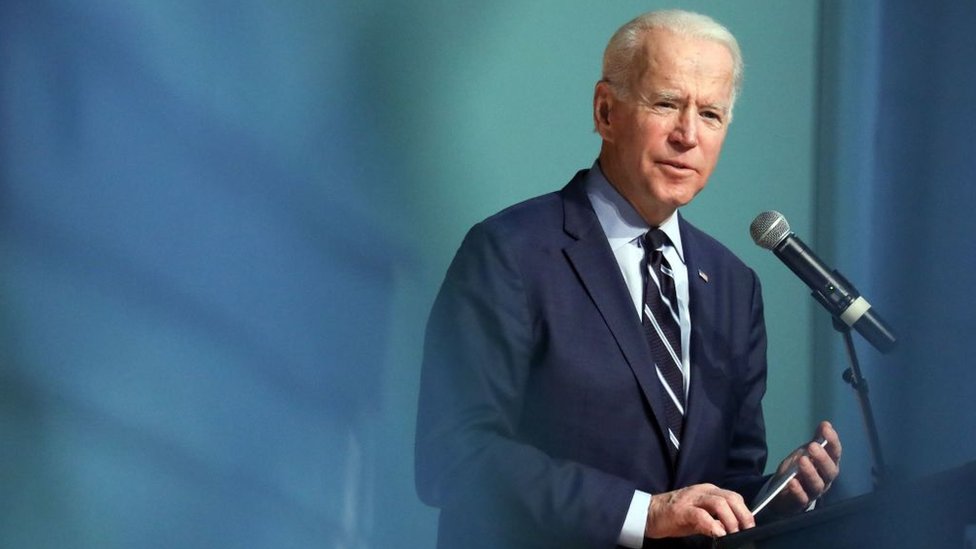
This election was the culmination of former US Vice-President Joe Biden’s third bid for the White House.
But unlike previous attempts in 1987 and 2008, he entered the race for the Democratic nomination as the de facto frontrunner, the best-known in the field.
The 77-year-old suffered early setbacks in the Iowa caucuses and New Hampshire primary but seized control of the contest with a string of successes on Super Tuesday when 14 states vote on the nomination.
Mr Biden’s lower-key election campaign style contrasted with President Donald Trump’s larger rallies as the Democrat portrayed himself as more responsible on observing coronavirus measures.
Although former President Barack Obama called him the “best vice-president America has ever had”, Mr Biden’s record from four decades in public office came under attack. So who is Joe Biden and how did he get to this point of becoming president-elect?
A political fixture
Mr Biden ran for the Democratic 2008 nomination before dropping out and joining the Obama ticket.
His eight years in the Obama White House – where he frequently appeared at the president’s side – has allowed Mr Biden to lay claim to much of Mr Obama’s legacy, including passage of the Affordable Care Act, as well as the stimulus package and reforms enacted in response to the financial crisis.
His association with Mr Obama – a man he frequently calls his “brother” – may have also contributed to his enduring support among African-American voters.
As a long-time Washington insider, Mr Biden had solid foreign affairs credentials, and helped balance Mr Obama’s comparative lack of executive experience.
The so-called “Middle Class Joe” was also brought on board to help woo the blue-collar white voters who had proved a difficult group for Mr Obama to win over.
He made headlines in 2012 by saying he was “absolutely comfortable” with same-sex marriage, comments that were seen to undercut the president, who had yet to give full-throated support for the policy. Mr Obama ultimately did so, just days after Mr Biden.
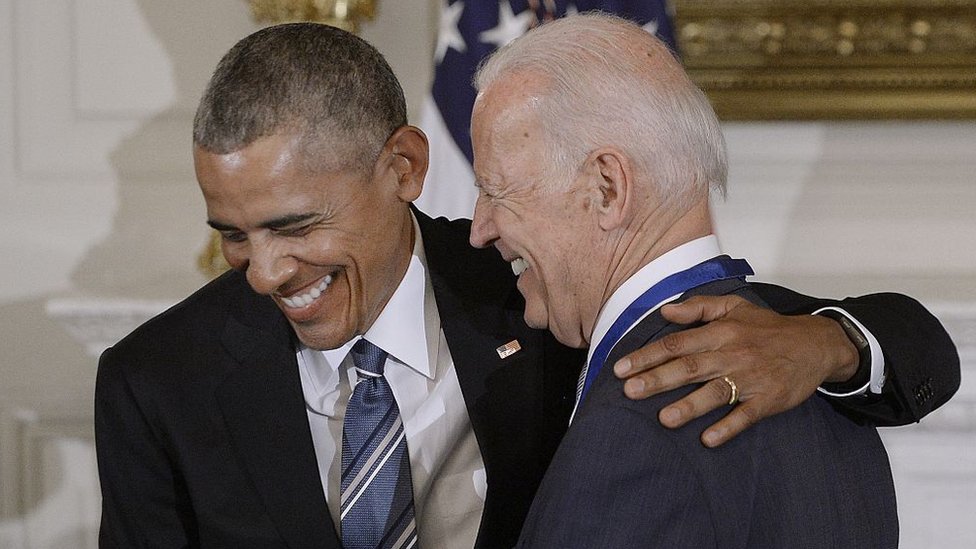
Mr Biden’s two terms supporting the first black president followed a long political career.
The six-term senator from Delaware was first elected in 1972. He ran for president in 1988 but withdrew after he admitted to plagiarising a speech by the then leader of the British Labour Party, Neil Kinnock.
His lengthy tenure in the nation’s capital has given critics ample material for attacks.
Early in his career, he sided with southern segregationists in opposing court-ordered school bussing to racially integrate public schools.
And, as chair of the Senate Judiciary Committee in 1991, he oversaw Clarence Thomas’s Supreme Court confirmation hearings and has been sharply criticised for his handling of Anita Hill’s allegations that she was sexually harassed by the nominee.
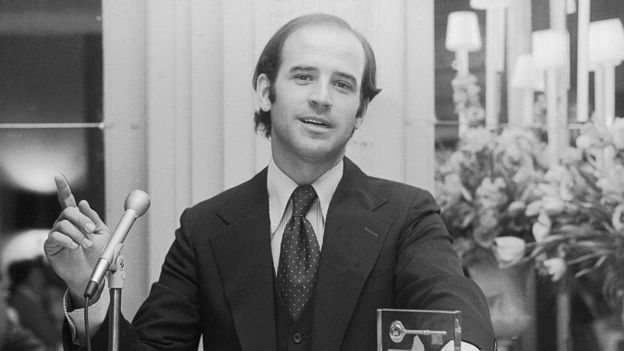
Mr Biden was also a fierce advocate of a 1994 anti-crime bill that many on the left now say encouraged lengthy sentences and mass incarceration.
The record made Mr Obama’s moderate vice-president a sometimes uncomfortable fit for the modern Democratic Party.
Losing loved ones
Mr Biden’s life has been dogged by personal tragedy.
In 1972, shortly after he won his first Senate race, he lost his first wife, Neilia, and baby daughter, Naomi, in a car accident. He famously took the oath of office for his first Senate term from the hospital room of his toddler sons Beau and Hunter, who both survived the accident.
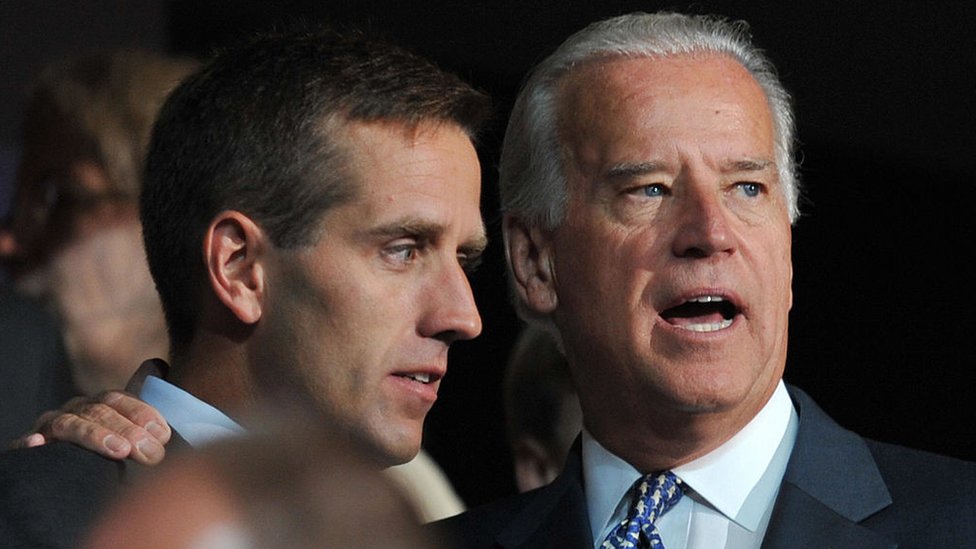
In 2015, Beau died of brain cancer at the age of 46. The younger Biden was seen as a rising star of US politics and had intended to run for Delaware state governor in 2016.
The elder Biden has credited Beau with encouraging him to run again, and during the campaign has used both tragedies to explain why healthcare – one of his signature policy goals – is “personal” to him.
Mr Biden garnered considerable goodwill following Beau’s death, which served to highlight Mr Biden’s central strengths: a reputation as a kind and relatable family man.
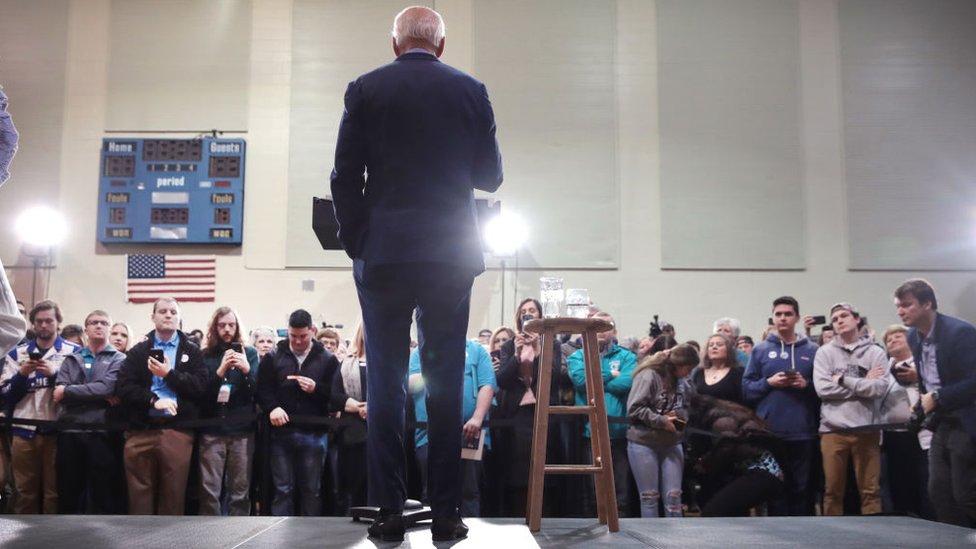
This perceived warmth is not without its pitfalls. After entering the 2020 race, he faced accusations of unwelcome physical contact during interactions with female voters – complete with uncomfortable accompanying footage.
But the avuncular politician responded by saying he was an empathetic person, though he accepted standards had changed. The episode, however, stoked a perception for some that he was out of touch.
SOURCED FROM BBC WEBSITE.

